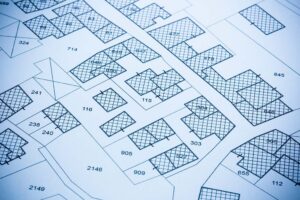Understanding Zoning Laws: A Crucial Guide for Home Buyers and Sellers
 Are you considering purchasing a new property or selling your current one? Understanding zoning laws is crucial for making informed decisions in the real estate market. Zoning laws regulate how land can be used and developed within a specific area, and they can have a significant impact on property values, potential uses, and overall enjoyment of a property. In this blog post, we’ll delve into the basics of zoning laws and why they matter in the realm of real estate.
Are you considering purchasing a new property or selling your current one? Understanding zoning laws is crucial for making informed decisions in the real estate market. Zoning laws regulate how land can be used and developed within a specific area, and they can have a significant impact on property values, potential uses, and overall enjoyment of a property. In this blog post, we’ll delve into the basics of zoning laws and why they matter in the realm of real estate.
What Are Zoning Laws?
Zoning laws are regulations put in place by local governments to control the use of land within their jurisdiction. These laws divide areas into zones or districts, each with its own set of rules regarding what types of activities or developments are permitted. Common zoning categories include residential, commercial, industrial, agricultural, and mixed-use.
Why Do Zoning Laws Matter?
- Property Use: Zoning laws dictate how you can use your property. For instance, residential zones typically allow for single-family homes, while commercial zones permit businesses and retail establishments. Understanding the zoning designation of a property can help you determine if it aligns with your intended use.
- Property Value: Zoning laws can significantly impact property values. Properties located in desirable residential neighborhoods with strict zoning regulations may command higher prices due to limited development and increased privacy. Conversely, properties near industrial zones or areas with less restrictive zoning may have lower values due to potential noise, pollution, or incompatible land uses.
- Development Potential: Zoning regulations outline what types of structures can be built on a property, including size, height, and setbacks. Before purchasing a property, it’s essential to research the zoning laws to assess its development potential. For example, a parcel of land zoned for mixed-use development may offer opportunities for residential units above ground-floor retail spaces.
- Community Character: Zoning laws play a crucial role in shaping the character and aesthetics of a community. By establishing guidelines for building design, landscaping, and use, zoning helps maintain a cohesive look and feel within neighborhoods. Preservation of historical districts, protection of natural resources, and promotion of sustainable development are often objectives of zoning ordinances.
How to Navigate Zoning Regulations
- Research Zoning Codes: Start by researching the zoning codes and regulations applicable to the property you’re interested in. You can typically find this information on the website of the local planning department or zoning board. Pay attention to zoning maps, ordinances, and any recent zoning changes that may impact the property.
- Consult with Experts: If you’re unsure about how zoning laws affect a particular property, consider consulting with real estate agents, land use attorneys, or zoning professionals. They can provide valuable insights and guidance to help you navigate complex zoning regulations and make informed decisions.
- Due Diligence: Conduct thorough due diligence before purchasing a property. This includes understanding current zoning designations, potential zoning changes or variances, and any pending development projects in the area. Be proactive in addressing zoning-related issues to avoid surprises down the road.
- Engage with the Community: Stay informed about local planning initiatives and community development projects. Attend zoning board meetings, neighborhood association gatherings, or public hearings to voice your concerns and stay involved in the decision-making process.
In conclusion, zoning laws are a fundamental aspect of real estate that can have far-reaching implications for property owners, buyers, and sellers. By understanding zoning regulations and their impact, you can make more informed decisions and navigate the real estate market with confidence. If you have any questions about zoning laws or need assistance with your real estate endeavors, feel free to reach out to us. We’re here to help you every step of the way.
Compliments of Virtual Results




 In the rapidly evolving landscape of real estate, technology continues to revolutionize the way we buy and sell homes. One of the most transformative innovations in recent years has been the advent of virtual home tours. These digital experiences allow prospective buyers to explore properties from the comfort of their own homes, offering convenience, flexibility, and a new level of immersion in the home buying process.
In the rapidly evolving landscape of real estate, technology continues to revolutionize the way we buy and sell homes. One of the most transformative innovations in recent years has been the advent of virtual home tours. These digital experiences allow prospective buyers to explore properties from the comfort of their own homes, offering convenience, flexibility, and a new level of immersion in the home buying process. In today’s dynamic real estate landscape, homeowners are exploring innovative ways to maximize their property’s potential. One such avenue gaining immense popularity is utilizing platforms like Airbnb to rent out your home. Whether you’re a seasoned investor or a first-time host, venturing into the world of short-term rentals can be a lucrative endeavor. Let’s delve into how you can leverage Airbnb to generate passive income while unlocking the full potential of your property.
In today’s dynamic real estate landscape, homeowners are exploring innovative ways to maximize their property’s potential. One such avenue gaining immense popularity is utilizing platforms like Airbnb to rent out your home. Whether you’re a seasoned investor or a first-time host, venturing into the world of short-term rentals can be a lucrative endeavor. Let’s delve into how you can leverage Airbnb to generate passive income while unlocking the full potential of your property. Are you considering selling your house but feeling unsure about the timing? It’s a common dilemma for homeowners, as the real estate market tends to fluctuate throughout the year. However, understanding the dynamics of each season can help you make an informed decision and maximize your profit. Let’s explore the best season to sell your house and why timing matters.
Are you considering selling your house but feeling unsure about the timing? It’s a common dilemma for homeowners, as the real estate market tends to fluctuate throughout the year. However, understanding the dynamics of each season can help you make an informed decision and maximize your profit. Let’s explore the best season to sell your house and why timing matters.
 Owning a home is a significant milestone in anyone’s life, but for many homeowners, the journey doesn’t end with the purchase. In fact, one of the most common financial goals for homeowners is paying off their mortgage loan as quickly as possible. With careful planning and strategy, you can take control of your financial future and achieve the dream of owning your home outright. In this guide, we’ll explore the ins and outs of paying off mortgage loans and how it can pave the way to financial freedom.
Owning a home is a significant milestone in anyone’s life, but for many homeowners, the journey doesn’t end with the purchase. In fact, one of the most common financial goals for homeowners is paying off their mortgage loan as quickly as possible. With careful planning and strategy, you can take control of your financial future and achieve the dream of owning your home outright. In this guide, we’ll explore the ins and outs of paying off mortgage loans and how it can pave the way to financial freedom. Homeownership is a significant milestone in one’s life, and choosing the right neighborhood to settle down in is equally important. When house hunting, you might come across communities governed by a Homeowners’ Association (HOA). While opinions on HOAs can vary, there are undeniable advantages to moving into a neighborhood with an HOA. Let’s delve into some of the pros:
Homeownership is a significant milestone in one’s life, and choosing the right neighborhood to settle down in is equally important. When house hunting, you might come across communities governed by a Homeowners’ Association (HOA). While opinions on HOAs can vary, there are undeniable advantages to moving into a neighborhood with an HOA. Let’s delve into some of the pros: In the world of real estate, every decision counts. From choosing the right neighborhood to negotiating a fair price, homebuyers are faced with numerous choices that can significantly impact their financial future. One such decision that often arises is whether to buy down your mortgage interest rate. But is it worth it? Let’s delve into this dilemma to find out.
In the world of real estate, every decision counts. From choosing the right neighborhood to negotiating a fair price, homebuyers are faced with numerous choices that can significantly impact their financial future. One such decision that often arises is whether to buy down your mortgage interest rate. But is it worth it? Let’s delve into this dilemma to find out. In the ever-evolving world of interior design, kitchen trends come and go. While some innovations stand the test of time, others quickly fade into obscurity, leaving homeowners with dated spaces sooner than they anticipated. As we step into 2024, it’s essential to discern which kitchen trends are best avoided to ensure a timeless and functional culinary space. Let’s delve into the kitchen trends to steer clear of this year:
In the ever-evolving world of interior design, kitchen trends come and go. While some innovations stand the test of time, others quickly fade into obscurity, leaving homeowners with dated spaces sooner than they anticipated. As we step into 2024, it’s essential to discern which kitchen trends are best avoided to ensure a timeless and functional culinary space. Let’s delve into the kitchen trends to steer clear of this year: When it comes to renovating your home, it’s important to invest your time and money wisely. While some renovations can significantly increase the value of your property, others may not provide the return on investment you were hoping for. In this blog post, we’ll explore some common home renovations that don’t add value and offer alternatives that can enhance both your living space and your home’s resale potential.
When it comes to renovating your home, it’s important to invest your time and money wisely. While some renovations can significantly increase the value of your property, others may not provide the return on investment you were hoping for. In this blog post, we’ll explore some common home renovations that don’t add value and offer alternatives that can enhance both your living space and your home’s resale potential.

 Catch Our Feed
Catch Our Feed Subscribe via Email
Subscribe via Email Follow Our Tweets
Follow Our Tweets Friend Us On Facebook
Friend Us On Facebook Watch Us On Youtube
Watch Us On Youtube